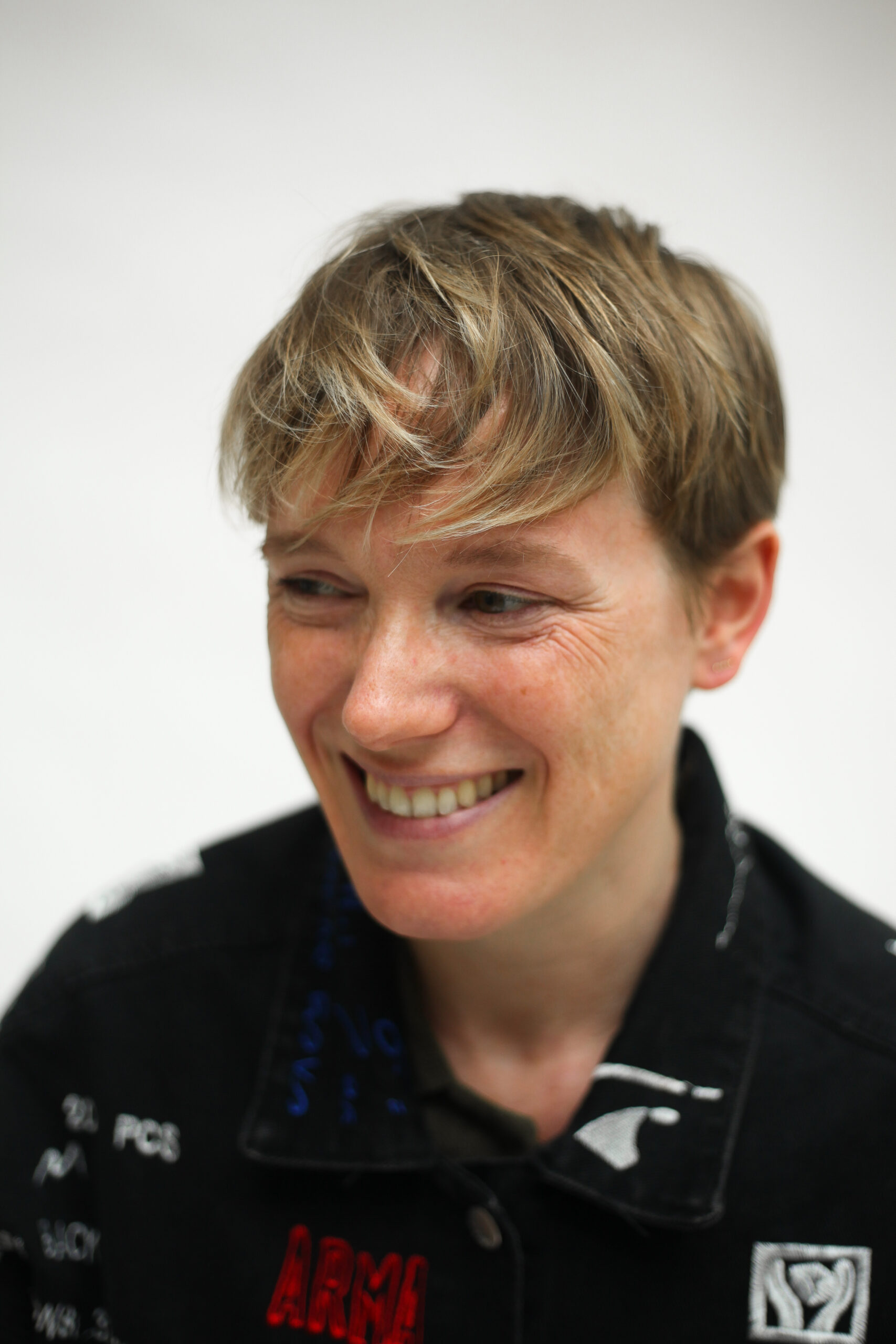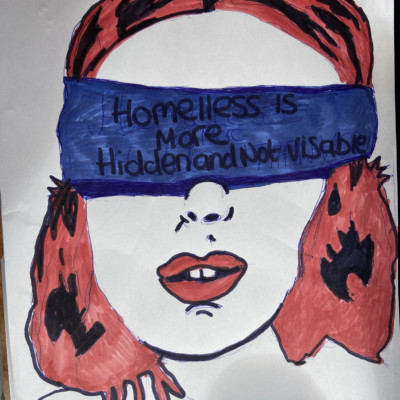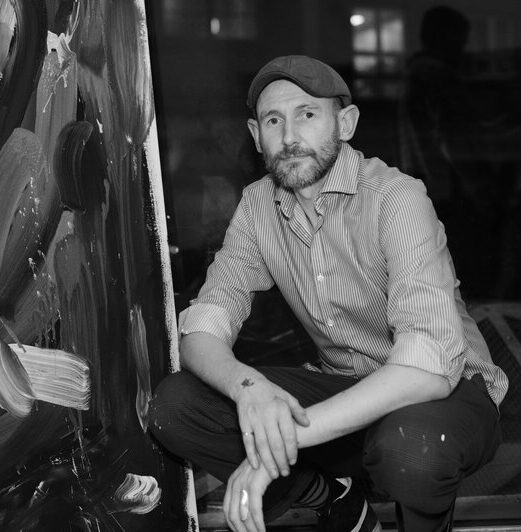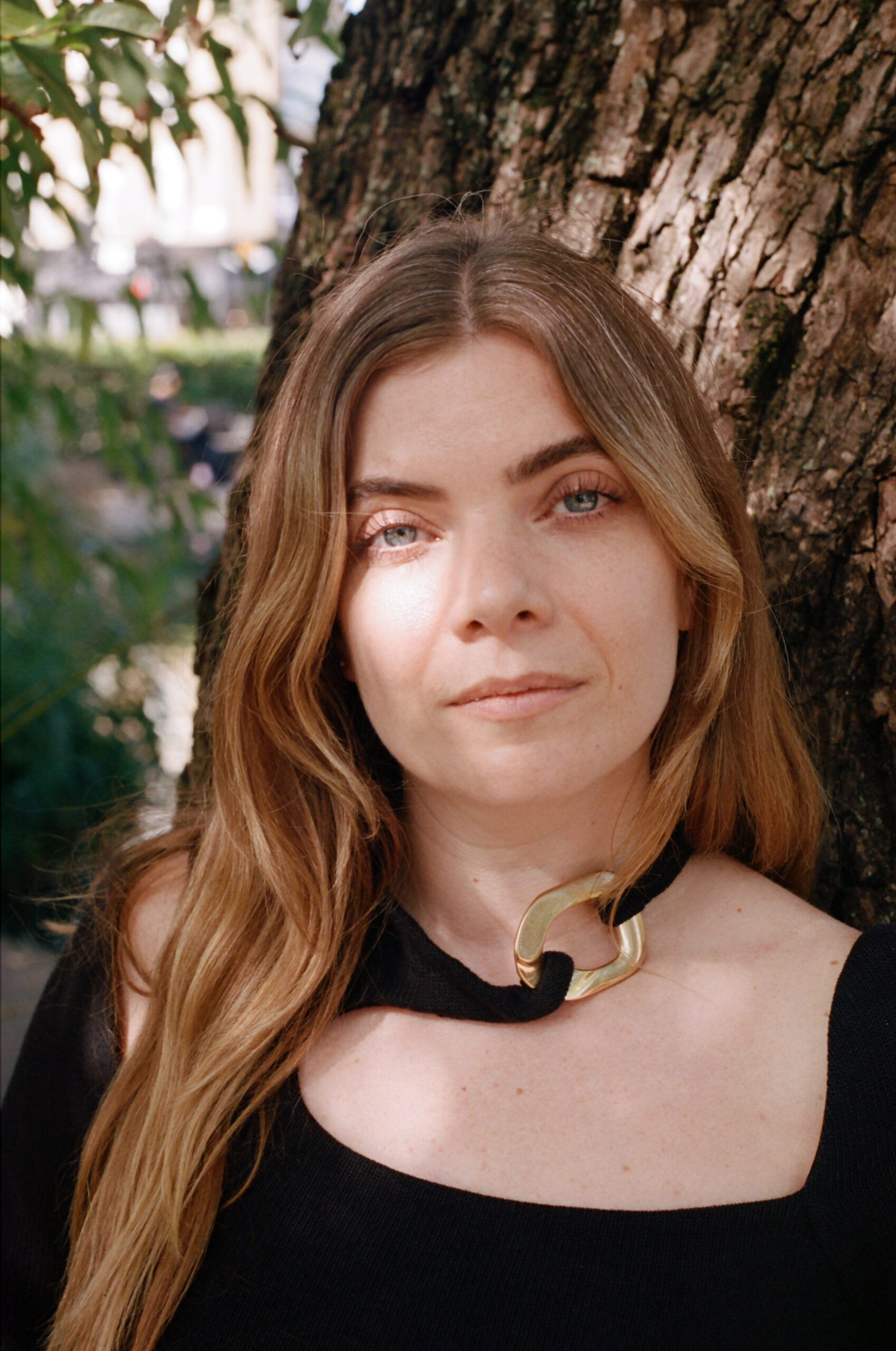Posted on May 22, 2024 by James Tookey -

A sparkling book that is all the more remarkable for being the author’s first. Okundaye is an outstanding guide to what it means to be black and gay in Britain, providing a perspective to the last four decades that is as revelatory as it is important. A marvellous piece of work that makes us think hard about how much we truly know about the country we live in.
Peter Frankopan, Chair of the Orwell Prize for Political Writing panel 2024
Posted on May 22, 2024 by James Tookey -

Why hasn’t this book been written before? From the first ever breast-feeder, Morgie the Jurassic rodent, to mallard ducks and whether men evolved to rape, and the opening scene of Stanley Kubrick’s ‘2001: A Space Odyssey’, this book has an astonishing range. Reimagining evolution through the female of the species, it’s told with pace, wit and scholarship, and made me laugh, made me gasp, made me angry. I learnt new things on every page.
Christina Lamb, Orwell Prize for Political Writing judge 2024
Posted on May 22, 2024 by James Tookey -

A powerful, timely and original work of reportage by the Jerusalem-based American journalist Nathan Thrall. It tells the story of a terrible school bus crash in 2012 on a highway outside Jerusalem used predominantly by Palestinians, which was badly maintained and heavily congested thanks to Israeli checkpoints. The accident killed six Palestinian children, including Milad, Abed Salama’s five-year-old son. In plain, vivid prose, Thrall unspools the sequence of events leading up to the crash from multiple perspectives, delving into Abed’s past and into the lives of other parents and family member. Thrall’s careful, historically informed reporting illuminates with distressing clarity the way the Israeli occupation and apartheid system suffuse the intimate lives of Palestinians in the West Bank, leading not only to daily inconveniences, hardships and indignities, but tragedies – accidents that could and should have been avoided.
Lola Seaton, Orwell Prize for Political Writing judge 2024
Posted on May 22, 2024 by James Tookey -

Can a book about a towering philosopher ever be described as “zippy”? That’s the word that keeps coming back to me when I think about Lyndsey Stonebridge’s compellingly readable book on Hannah Arendt’s life and work. With antisemitism and totalitarianism on the rise in 2024, Arendt’s lucid thinking is as relevant as ever – and We Are Free to Change the World deserves to be read far and wide. (Especially on university campuses.)
Rohan Silva, Orwell Prize for Political Writing judge 2024
Posted on May 22, 2024 by James Tookey -

In the summer of 1989, a group of Hungarian activists did something unthinkable: they entered the forbidden militarised zone of the Iron Curtain – and held a picnic. They were joined by East German holidaymakers in Ladas rolling up for goulash, beer and brass-bands. I did not know this story and I loved the way it surprised me and captured the time, the idealism, and the role of ordinary citizens in the unravelling of the Iron curtain – as well as its echoes for today. Wonderfully told through extensive interviews with everyone from the human rights activist who came up with the madcap idea, the stubborn young woman who made it happen, to Stasi agents and border guards.
Christina Lamb, Orwell Prize for Political Writing judge 2024
Posted on May 22, 2024 by James Tookey -

The health – or otherwise – of India’s democracy is about as big as political questions get. By telling sprawling stories of some of India’s bravest campaigners and activists, Alpa Shah reveals an awful lot that’s worrying about India today – but also gives us ample reason to believe that a brighter future may lie ahead.
Rohan Silva, Orwell Prize for Political Writing 2024 judge
Posted on May 22, 2024 by James Tookey -

The magisterial craft of James lies in its combination of biting humour and a page-turning plot, with ruminations on sovereignty and Voltaire along the way. Everett stays close, if not true, to the dangerous journeys of Huckleberry Finn, and draws on titans of post-Reconstruction African American writing to bring Jim to the foreground of the story. As we keep pace with our charismatic narrator, Twain’s tale of friendship on the run is converted into a larger history of collective freedom won through close encounters with the great American outdoors and its jealous, violent gatekeepers.
Lara Choksey, Orwell Prize for Political Fiction judge 2024
Posted on May 22, 2024 by James Tookey -

A novel exploring the fallout of the 1984 shootings at the Libyan embassy in London, and its effect on three friends. The quietness of the prose belies the event’s traumatic drama and its profound personal and political repercussions. The style is old fashioned – genteel almost – and authentic to the point of reading like the most exquisite memoir. A warm and extraordinarily clear-sighted novel that is, in part, about the power of the literary word to effect real-world change.
Simon Okotie, Orwell Prize for Political Fiction judge 2024
Posted on May 22, 2024 by James Tookey -

Collins fuses history and invention with utmost care and creativity in a book that imagines the thinking, reading, working, politically active lives of the women who came before Malcolm X. Capacious in scope, Ocean Stirrings spans two centuries, taking us from Grenada to Canada to the USA, considering African inheritance and the European power. Yet it’s also a work of stillness and close attention. It makes space for the story of a girl in a Grenadian classroom, reading Byron, reading Cowper, asking questions of the world, given courage by her teachers and her mother to make her own decisions. With a deep sense of purpose and not a hint of literary showiness, Collins brings together many voices, from eighteenth-century English letter-writers to Black rights orators, and she honours the rich Grenadian creole, now largely lost, with a new life here on the page.
Alexandra Harris, Chair of the Orwell Prize for Political Fiction panel 2024
Posted on May 22, 2024 by James Tookey -

A formal masterpiece, Blackouts creates its own zone beyond the story it tells: a redacted history of queer sexology via an intergenerational deathbed dialogue. This intricate collage of record and remembrance is held together by poetry, art, photography, and institutional documents, and hinges its political world-building on the pleasures to be had in this compilation. In exquisite prose, Torres shows how choosing another inheritance might alter a future that seems inexorable.
Lara Choksey, Orwell Prize for Political Fiction judge 2024
Posted on May 22, 2024 by Eric Blair -

Hannah Silva is a writer and performer working in sound poetry, radio and experimental non-fiction. Her eighth BBC radio play, ‘An Artificially Intelligent Guide to Love’ was the starting point for My Child, the Algorithm (Footnote Press/Soft Skull) – one of the first books to subvert and play with AI. It weaves Silva’s questioning of love and queer single parenting into surreal and funny contributions by a predecessor of ChatGPT, and a toddler (a Granta Book of the Year 2023). Silva is working on her next book, about theft, polyamory and renting on Universal Credit in Tower Hamlets, East London.
Read an extract from Hannah’s shortlisted entry.
Posted on May 22, 2024 by Eric Blair -

Unheard Voices are a group of community reporters living in Greater Manchester with experience of unfit housing and/or homelessness.
In summer 2022, a community reporting network was formed in Manchester with a group of people with lived experience of unfit housing and homelessness. Unheard Voices started to collect and share their stories of the housing emergency, finally publishing two co-created pieces of work in summer 2023.
Unheard Voices want society to see people experiencing homelessness and unfit housing as humans, rather than numbers. By telling their stories, and their truth, they want to transform how the housing emergency is perceived, challenging stereotypes and breaking down stigma.
Submitted pieces:
- Unheard Voices Microsite: In this collection of reports, Unheard Voices share their stories, insights and experiences of trying to navigate a housing system that is not fit for purpose
- The Manchester Maze: the maze is a concept created by the group – a collection of human stories and an action plan based on what they think needs to change.
This community reporting project was funded by the charity, Shelter UK, in partnership with On Our Radar.
Posted on May 22, 2024 by Eric Blair -

David Tovey is an Internationally award winning artist, educator and activist who works in a range of media. He is a photographer, painter as well as an installation artist and performance-maker. At the heart of David’s practice is a very special quality – the ability to bring you to the subject in ways both beautiful and hard-hitting in equal measure in order to raise awareness about the social issues he tackles. David has exhibited internationally in locations such as the Atsa Festival Montreal, Kunsthall Stavern Norway, Tate Modern and Tate Liverpool and he is also the founder of the UK’s first One Festival of Homeless Arts. He speaks regularly at housing and homelessness events and teaches art to people experiencing homelessness at Passage House. His Man on Bench performances have earned him significant acclaim and have taken place on the pavement of the London’s Southbank, The Mayfield Depot Manchester and the halls of Tate Exchange.
David is Co-Director at Arts & Homelessness International, the Patron of The Gem Programme, a Trustee at Unlimited, a Big Issue Change-Maker 2019 and a core group member of the Museum of Homelessness.
His shortlisted pieces are:
Posted on May 22, 2024 by James Tookey -

Everything is connected in this teeming, gripping, horrifying panorama of British society. In the tradition of Fielding, Dickens, and Orwell himself, the novelist gets everywhere: slipping into the Old Bailey, inviting himself to the polo, sharing a Mayfair magnum while taking notes. And, true to that tradition, Caledonian Road is absolutely contemporary: it gets to work in a world of branding and media spin, of hacking and cover-ups. It asks where the money is coming from, and who knows what, and how chasms of inequality are widening between people passing on the same London pavement.
Alexandra Harris, Chair of the Orwell Prize for Political Fiction panel 2024
Posted on May 22, 2024 by James Tookey -

A novel that handles trauma with honesty and care. There is no sugar-coating with virtue or easy beauty here. This is a story that employs a cleanly cinematic gaze to observe the plain disintegration of a family through a pattern of social circumstance, addiction and prejudice, egged on by the ruthlessness of 90s tabloid journalism – to give us a portrayal of a society both fractured and hopeful.
Ross Raisin, Orwell Prize for Political Fiction judge 2024
Posted on May 22, 2024 by Eric Blair -

Vicky Spratt is an award-winning journalist, author, and housing rights advocate. Her book TENANTS was a Financial Times book of the year in 2022. She is a columnist and housing correspondent at The i Paper where her work has seen her nominated for a British Journalism Award and shortlisted for the Orwell Prize. In 2017, her campaign succeeded in getting letting fees banned. Since then, she has given evidence in Parliament and been name-checked by ministers on the floor of the House of Commons because of her reporting on homelessness. Her work has contributed to several other major policy changes. Vicky has presented documentaries for Radio 4 and the BBC. She has also regularly appears on flagship news programmes such as Newsnight, the Andrew Marr Show, and BBC News and is a regular contributor to Radio 4, LBC, and the Newsagents podcast. Her long-form interview about the economics of the housing crisis with Novara Media was one of their most viral yet. Vicky is regularly asked to speak at political conferences with both government and opposition ministers and changemakers, she has interviewed key political figures such as Michael Gove, Jeremy Corbyn, and Angela Rayner and spoken at literary festivals from Edinburgh to Hay as well as music festivals such as Bristol’s Forwards festival. She has been invited to Glasgow and Rotterdam to speak about her work. Her writing on abortion rights and women’s life choices has also appeared in ELLE Magazine, Refinery29, VICE, and the Guardian.
Her second book will be published by 4th Estate in 2025.
Her shortlisted pieces are:
Posted on May 22, 2024 by James Tookey -

An obliquely political and beautifully strange narrative in which the message is never in your face – rather, diffused from above in a way that is at once mesmerizing and troubling. This is a novel that asks questions about an earth lined with its own human markings of war, industry, climate change; written with such a delicate touch that it is only afterwards that you understand the activating power of the book you’ve just held in your hands.
Ross Raisin, Orwell Prize for Political Fiction judge 2024
Posted on May 22, 2024 by Eric Blair -

Liam Thorp is the Liverpool Echo’s award-winning political editor. As well as covering all aspects of politics, he has developed a reputation for reporting in depth on subjects of poverty, housing, homelessness and social affairs.
He has twice been named the regional press specialist reporter of the year and in 2023 was nominated for a Private Eye’s prestigious Paul Foot award.
In 2023, Liam’s reporting took him to the frontline of Liverpool’s homelessness and housing crisis after the city council declared an emergency. He gained the trust of those living at the sharpest end of the crisis and investigated the perfect storm of problems facing the city, including how a government plan to reduce its asylum backlog had created a humanitarian catastrophe on the streets of the city.
His work was hugely influential and went viral online, being read and shared hundreds of thousands of times.
Liam lives in south Liverpool with his wife, baby son and Romanian rescue dog.
His shortlisted pieces are:

















